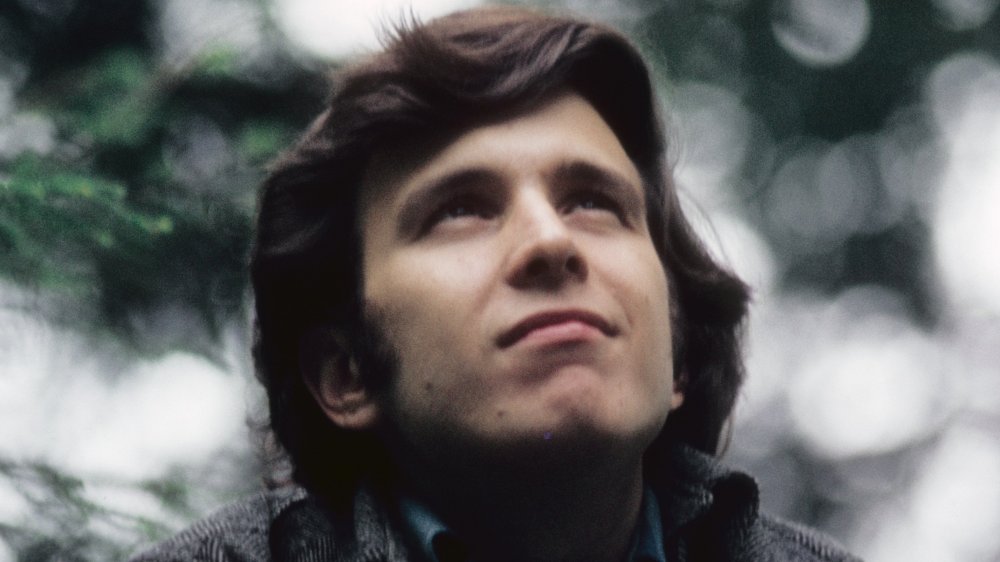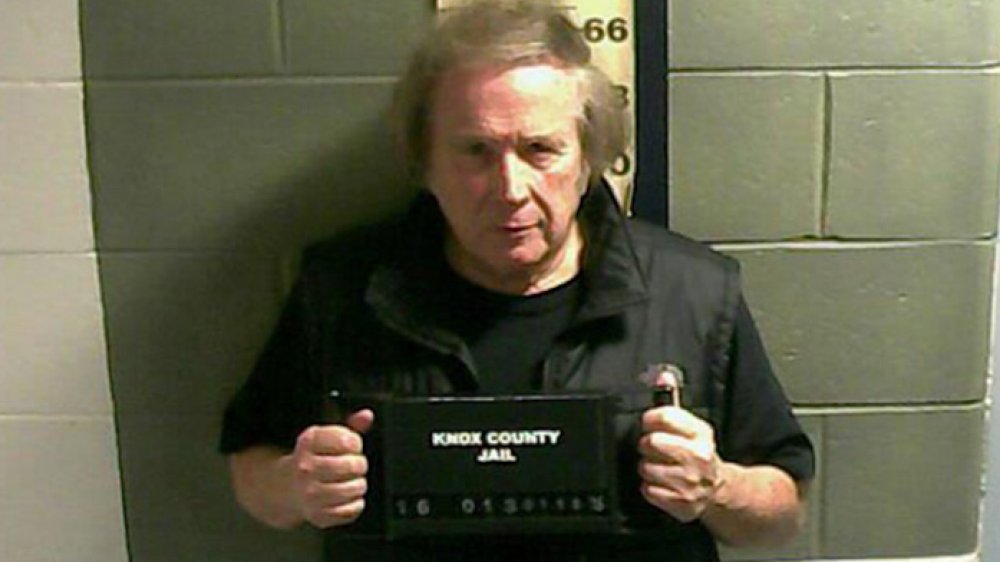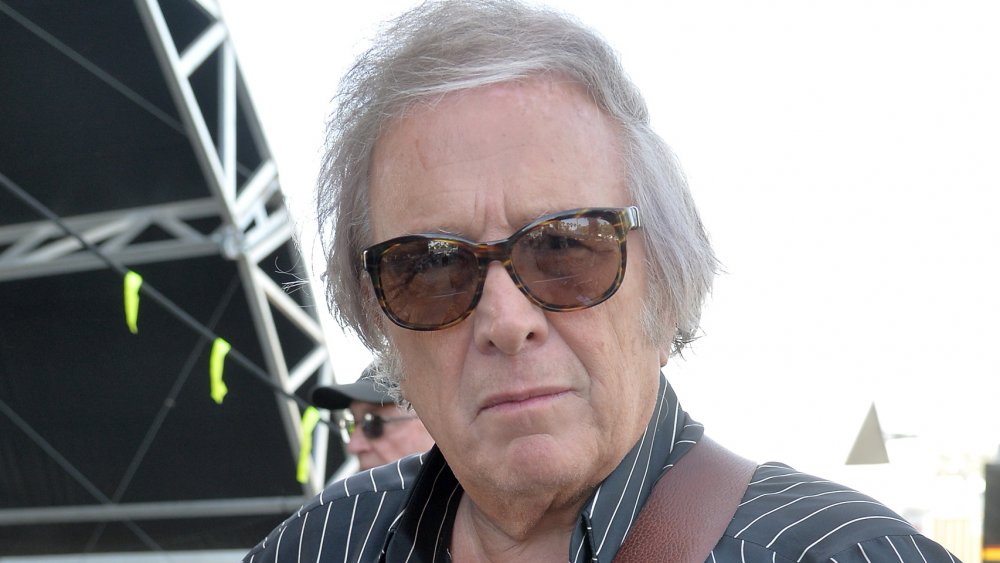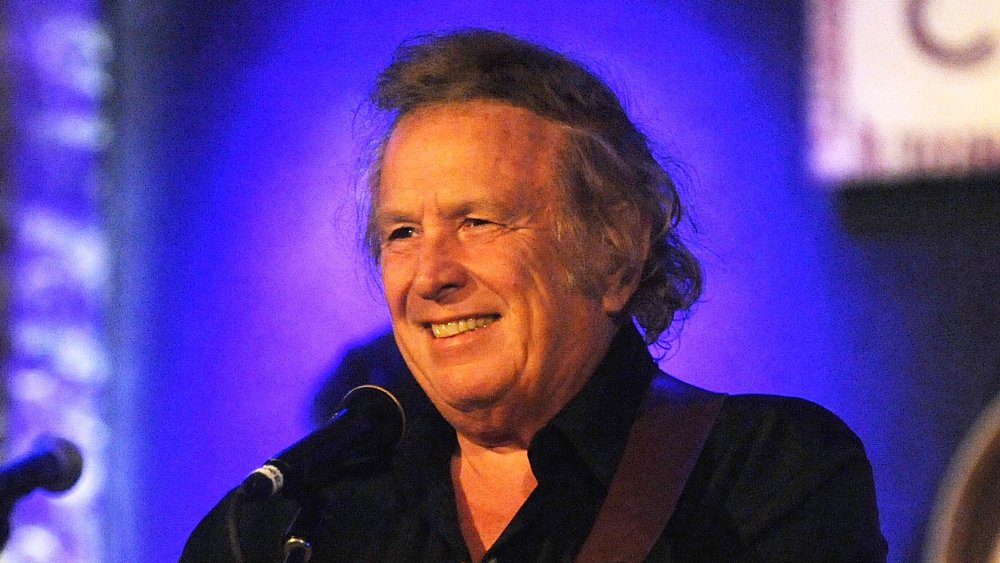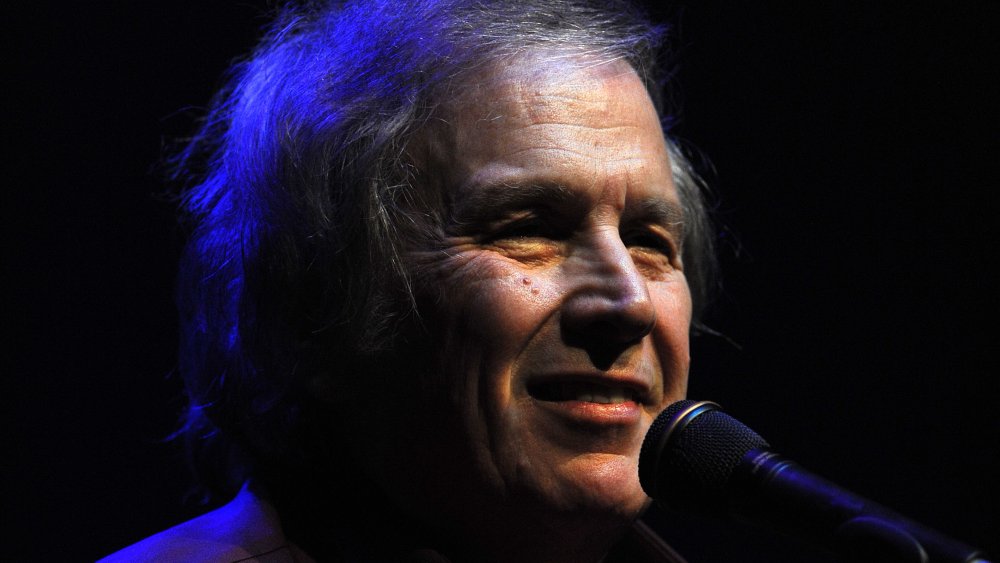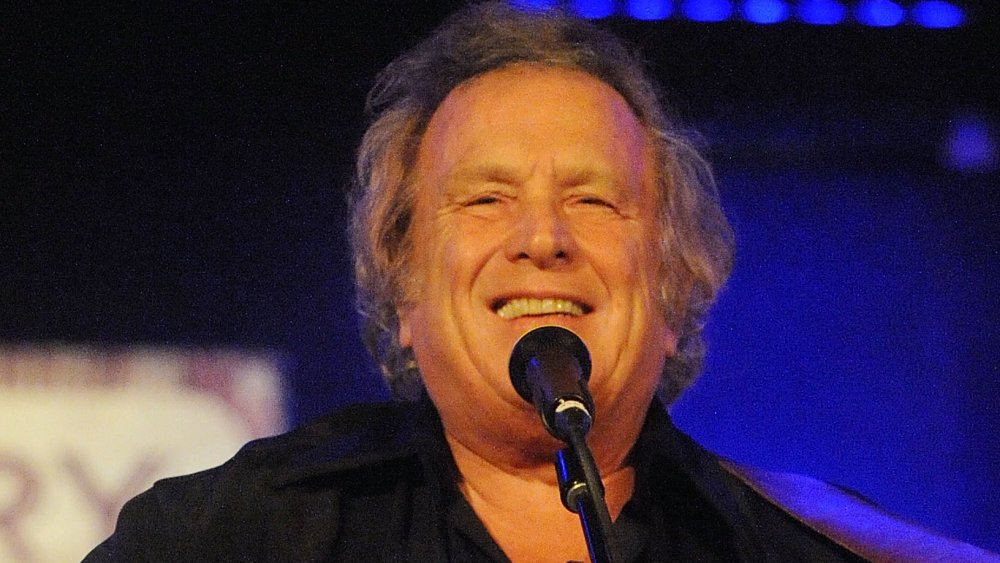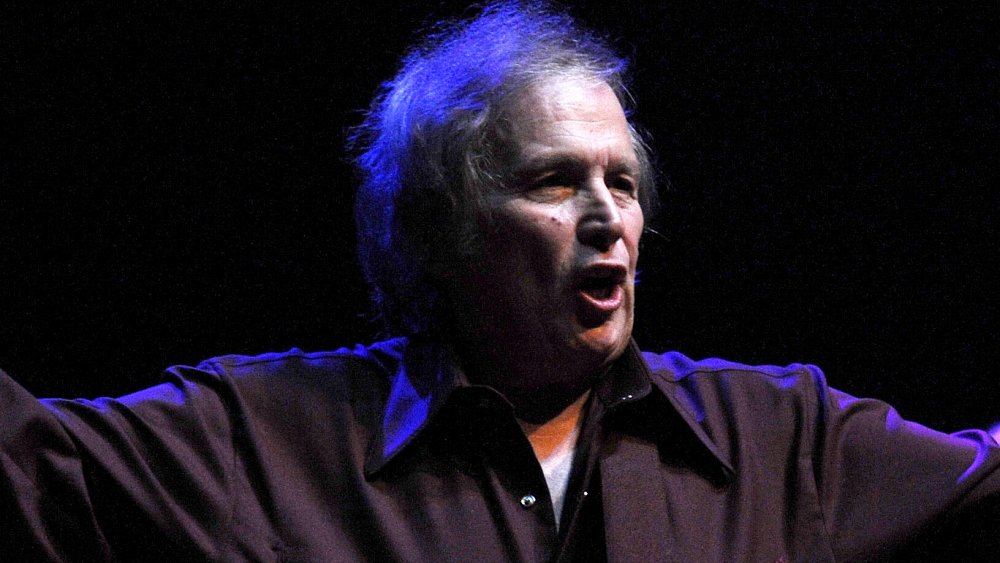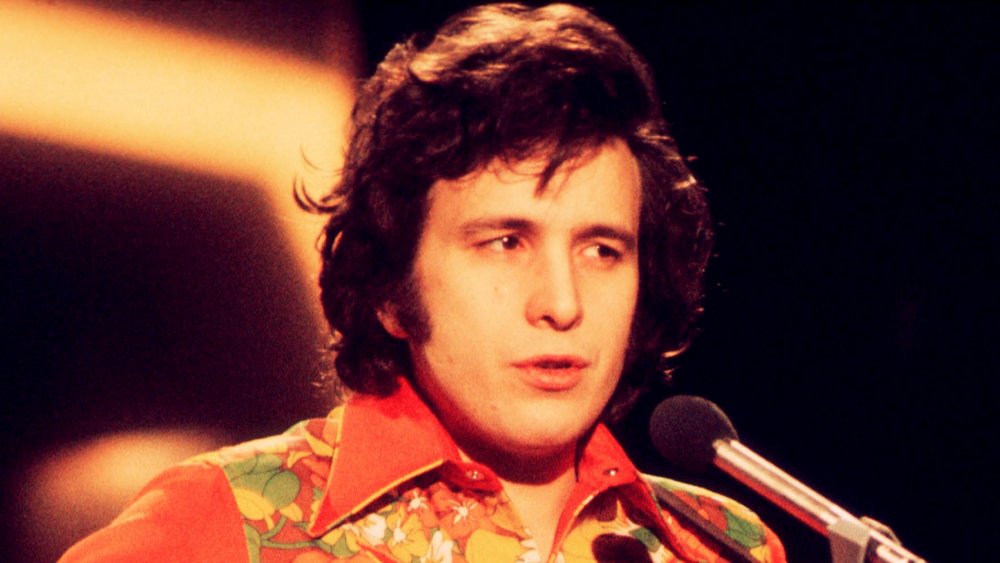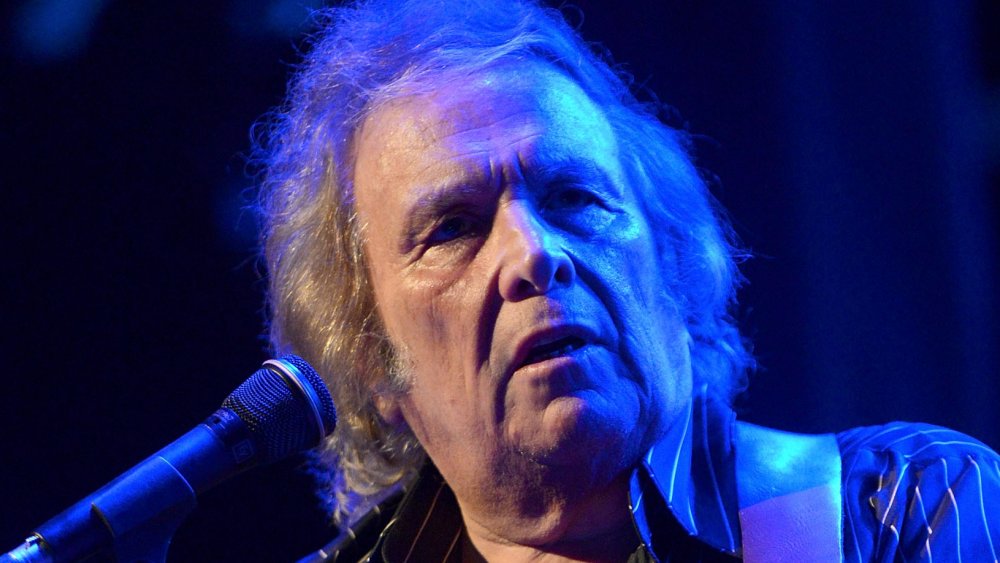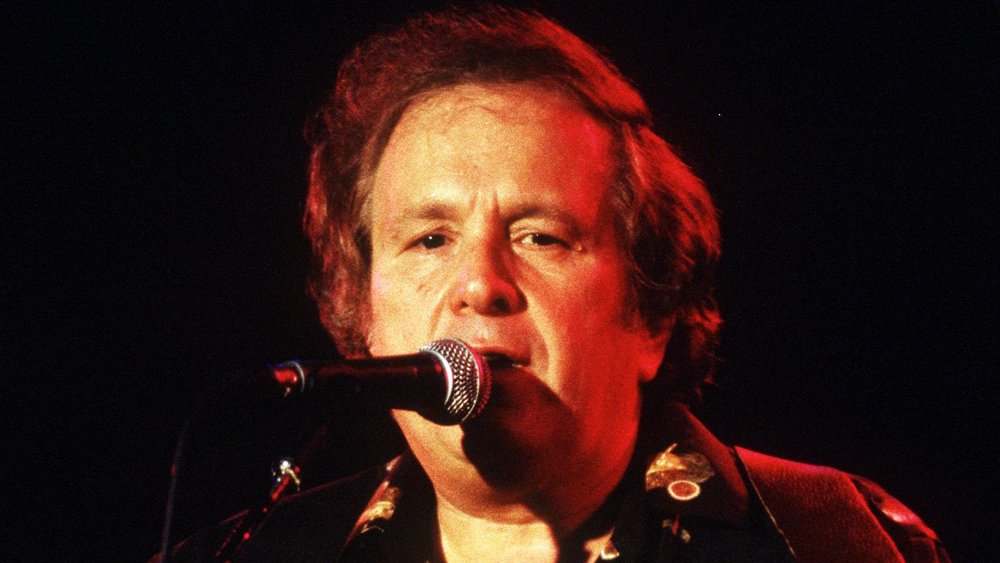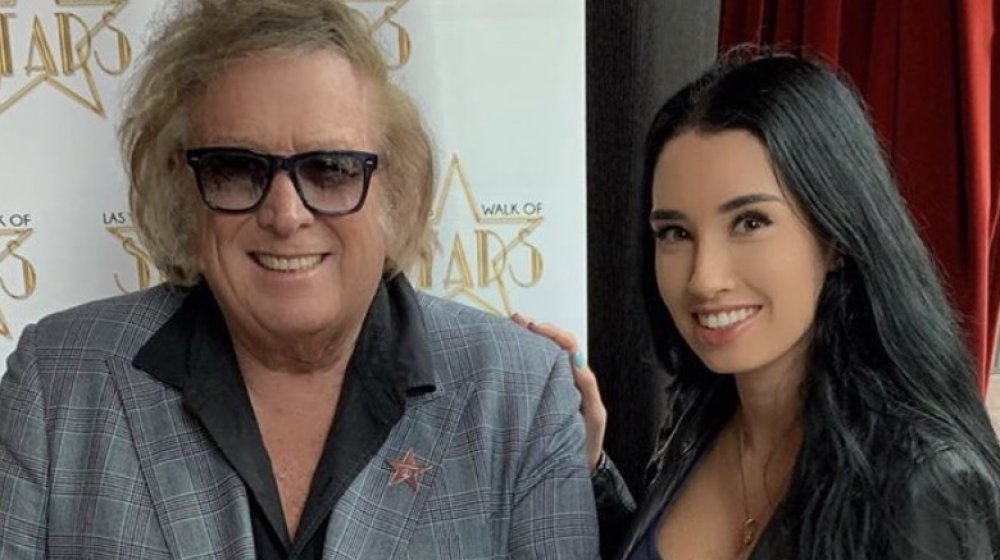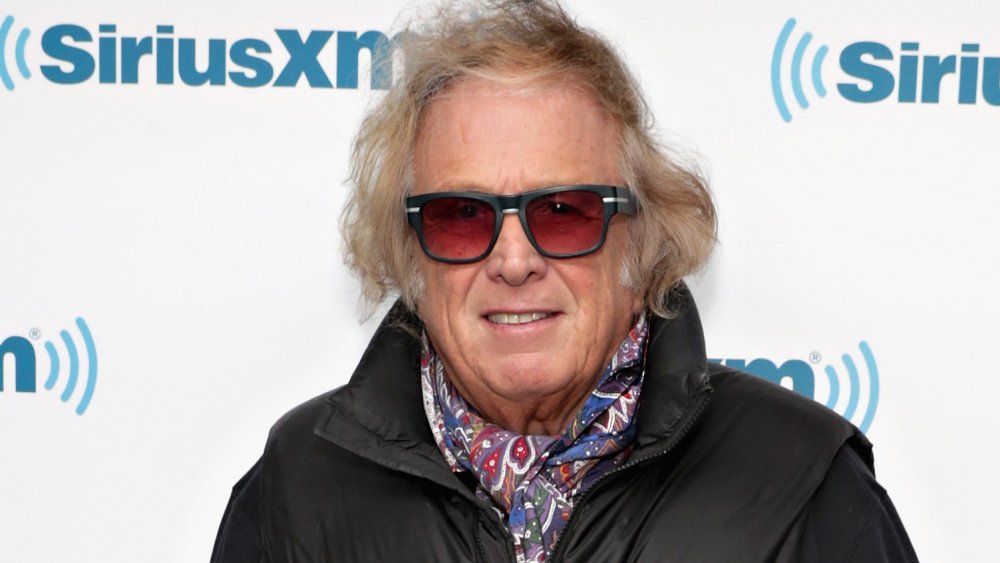The Messed Up Truth About Don McLean
The success of singer-songwriter Don McLean, in a quantifiable way, has historically proved rather limited. "American Pie" topped the charts in early 1972, but beyond that, he scored just two Top 20 hit singles: the Van Gogh tribute "Vincent" in 1972, and a Top 5 cover of Roy Orbison's "Crying" in 1981. But it doesn't really matter, because "American Pie" was massive enough to fund McLean's living expenses for decades to come. Partly an early entry in the '70s singer-songwriter boom but also a reflection of the early '60s folk craze, "American Pie" touched an intellectual and emotional nerve with Baby Boomers because the song told the generation's history. The poetic, metaphor-loaded lyrics depict the story of rock 'n' roll and its impact on American youth. "American Pie" is a bittersweet nostalgia trip, but one that's endured as a hallmark of the '60s generation.
McLean, however, hasn't been an untouchable generational icon, like, say, Paul McCartney or Bob Dylan and has a life loaded with troubling, alarming, and controversial moments. Here's a look into the weird life of Don McLean.
Don McLean was arrested for domestic violence
In the early morning hours of January 18, 2016, according to the Penobscot Bay Pilot, police in Camden, Maine, responded to a 911 call coming from the home that Don McLean shared with his second wife, Patrisha McLean. The musician was arrested without a struggle and booked at the Knox County Jail at about 3:00 AM, before he posted the $10,000 bail and was released, according to WCSH-TV (via USA Today).
Charged with a misdemeanor count of domestic violence assault, McLean avoided jail time by entering a guilty plea. He was ordered to pay a $3,000 fine and threatened with imprisonment if police were called on him at any time over the upcoming year. According to Billboard, a judge granted Shnier a temporary order of protection to keep McLean away, which she requested in a note to the court that detailed years of abuse as a result of the singer's "unfathomably deep and scary" anger, which culminated in the night she called 911. "Don terrorized me for four hours, until the 911 call that I think might have saved my life." In a statement, McLean said his marriage was merely in the middle of a "very painful breakdown" and that he's "not a villain."
Don McLean's wife divorced him for a long list of reasons
About six weeks after Don McLean's alleged history of domestic abuse came to an end when his wife had to ask for Camden, Maine, police to intervene, the singer-songwriter found himself in the midst of another messy legal matter: divorce. In March 2016, according to The Hollywood Reporter, Patrisha McLean (née Schnier) filed the paperwork to end the couple's nearly 30-year marriage. As grounds for the split, the former Mrs. McLean cited "adultery, cruel and abusive treatment, and irreconcilable differences." In a statement from her attorney, Gene Libby, Patrisha said that she had mustered the power to walk away after gaining "strength and insight away from" her husband, as a separation order had kept him at a distance.
As for Don McLean, he issued a statement of his own through a lawyer, denying the bad things his estranged spouse accused him of, claiming that he "cares very deeply about his wife and family" and that a divorce "wasn't what he wanted." Per the BBC, the divorce was finalized in June 2016, with the McLeans ignoring a prenuptial agreement and settling on a $10 million payout to Patrisha McLean.
Don McLean had a lifetime achievement award rescinded
After that ugly and scandalous sequence of events in 2016 that landed Don McLean in jail and unmarried, the singer-songwriter got some positive news in May 2019. According to Rolling Stone, the Student Alumni Association of UCLA announced that it would honor McLean with its George and Ira Gershwin Award for Lifetime Musical Achievement. But the organization had completely missed the McLean news from 2016 — according to the Portland Press Herald, when the UCLA alumni group learned that its honoree had been arrested (and pleaded guilty) to a domestic violence charge, it took the award back. "SAA rejects any behavior — including violence and the threat of violence in all its forms," UCLA communications director Tod M. Tamberg said in a statement.
McLean's camp didn't take the news well. "It is publicly disrespectful and grossly humiliating to Mr. McLean to issue and then rescind an award based on the supposition of any violent criminal history," his spokesperson said in a statement. McLean himself wrote a vitriolic open letter to UCLA on Facebook. "Are you people morons?" he wrote (via USA Today). "Don't ever come near me again unless you offer me an apology for the damage you have done me."
Don McLean threatened to sue his ex-wife
In his Facebook post (via USA Today) expressing anger over having a lifetime achievement award rescinded, Don McLean called his 2016 arrest for assault on his wife and subsequent divorce "settled law" and merely a "squabble." It's as if he wanted bygones to be bygones — as far as the public's perception of him was concerned. When his ex-spouse, Patricia McLean, tried to process her tumultuous experiences being married to (and allegedly abused) by McLean in an artistic way, he wouldn't have it.
In February 2019, according to the Associated Press, Patricia McLean opened an art installation at the Camden Public Library in Maine (near where she once lived with her musician ex-husband) called "Finding Our Voices: Breaking the Silence of Domestic Abuse," which shared the stores of domestic violence survivors. The Free Press of Rockland, Maine, wrote about the exhibit, upon which Don McLean's lawyer threatened to sue because it contained "vicious misstatements" about the singer, delivered by Patrisha McLean. She later told the AP that the notion of a lawsuit was "shocking to everybody but not to me."
The comedy stylings of Don McLean
In December 1991, Don McLean played the Irvine Barclay Theatre near Los Angeles. It was a holiday show, and McLean's set included some Christmas carols, but the singer-songwriter wasn't feeling the joyful spirit of the season that night. According to the Los Angeles Times, he peppered his between-songs banter with terrible, cliche-fueled jokes about easy targets and low-hanging fruit, and for reasons completely unclear.
After pointing out that the Barclay Theatre was a classy joint, he discussed the good old days playing L.A.'s legendary Troubadour, which, although he considered it a "dive" back then, was at least better than what the Troubadour had become by the early '90s: a hangout for hair metal bands. McLean had some more far from hot but nonetheless withering putdowns about fellow musicians. He called mid-century crooner Perry Como bland, poked fun at Willie Nelson for his tax debt issues, said Kenny Rogers couldn't sing well, and joked about how Randy Travis had a large head.
McLean even reflected on his famously cryptic signature song, "American Pie." "When people ask what 'American Pie' means," McLean cynically began, "I tell them, '[It means] I don't have to work any more if I don't want to." And apart from all that, McLean should've been saving his voice. He went on with the show despite a case of laryngitis that had left his singing voice sounding "spotty."
Don McLean thinks he inspired great artists
Both on his official website and Facebook account, Don McLean loves to post boastful and self-aggrandizing bits of trivia about himself. Here's one: "Did you know? Johnny Cash wrote 'I Wish I Could Yodel' after hearing Don sing 'Lovesick Blues' in Cash's home," the meme-style image read. And another example, in picture form: "According to the movie Tupac, the Resurrection Tupac Shakur was influenced by Don McLean, and his favorite song was 'Vincent.'"
McLean seems to be trying to tell both the cool older folks and the young hip-hop fans that he has major artistic credibility if respected icons like Johnny Cash and Tupac were deeply moved by his work. The problem: McLean embellished the actual truth behind those "facts" at best and got them completely wrong at worst. For example, no song called "I Wish I Could Yodel" appears in lists of music from the late Man in Black. He did cover a song called "Blue Yodel #9," but that was by country musician Jimmie Rodgers, who died in 1933 ... 12 years before McLean was born.
As for Shakur, McLean not only got the name of the movie wrong — the documentary in question is called Tupac: Resurrection – but he twisted the rapper's words. Tupac didn't say that "Vincent" was his favorite song, merely that his "inspiration for writing music is like Don McLean did when he did 'American Pie' or 'Vincent,'" turning "deep stories" about people into lyrics.
Don McLean treats his supporting acts very poorly
Andy Breckman, a DJ on influential New York-area radio station WFMU, started his career as a folk musician in the 1970s. Early on, he signed with once-mighty manager Herb Gart, who had just one major act left in his client base: McLean. Gart placed Breckman as the opening act for McLean on a 1980 tour of western Canada. Breckman was excited, until he met McLean, whom he called in a 1994 article for LCD (via WFMU's website), "the most bitter, petty, insecure scumbag I ever met."
Breckman recalls McLean bullying their tour manager and ranting about musicians he considered untalented, like Bruce Springsteen and Bob Dylan. After shows, Breckman said, McLean routinely picked up female fans and took them to his hotel room for what he nicknamed "d*ck autographs." Nevertheless, Breckman stayed respectful, and during each show, he would play a short chunk of "American Pie" and then joke, "Gosh, I hope Don hadn't planned on singing that one." McLean said he liked the bit, but on the final show of the tour, McLean ended his show by declaring, "I'll be back next year. I won't be bringing my special guest,'" which was how Breckman had been billed.
McLean was also keen on making a TV show about a singing cowboy who fought crime. He never made it, but after mentioning it once to actor John Ritter, according to Breckman, McLean was convinced that the Three's Company star was going to steal the idea.
Don McLean is opposed to the Me Too movement
According to the Chicago Tribune, Tarana Burke created the phrase "Me Too" in 2006 as a rallying cry and show of support to help women, particularly women of color, who had survived sexual assault. "Me Too" became a full-on social movement (and hashtag) in 2017 when a series of powerful men in the entertainment industry and political realm were accused of sexual misconduct, including Louis C.K., Harvey Weinstein, and Matt Lauer. Men who had done horrible things and gotten away with it were suddenly running scared and fearing for their careers as countless past acts came to light and many industries experienced a reckoning of how they operated.
Don McLean doesn't like any of it — the Me Too phenomenon, that is, dismissing it as not as important as his generation's anti-war protests of the 1960s. "There's a lot of disingenuousness around now," the musician told Kentucky radio station WFPK (via NME). "I think it was more sincere when we were dealing with our friends and buddies being killed in Vietnam." He added that it's "a laugh" that members of the Hollywood community were acting like "they've suddenly discovered the casting couch after 60 years."
Don McLean trashed a guy who wrote a song about him
Roberta Flack hit #1 on the pop chart in 1973 with one of the smoothest and most haunting songs ever recorded, "Killing Me Softly With His Song," a cover of a tune by little-known singer Lori Lieberman. According to The Billboard Book of #1 Hits, songwriters Norman Gimbel and Charles Fox wrote the song for Lieberman based on an experience she had, becoming completely enchanted by Don McLean when she saw him perform at the Troubadour club in Los Angeles. "I was moved by his performance, by the way he developed his numbers, he got right through to me," Lieberman told the New York Daily News in 1973.
That's a sweet story that paints McLean in a very positive light, yet years later, he feuded with co-writer Gimbel. In a 2018 Facebook post, McLean recalled that years prior, he received a call from an "abusive and obnoxious" Gimbel, who claimed McLean was taking undue credit as the inspiration for the song. "I thought he must be off his meds," McLean quipped, adding that after Gimbel threatened to sue for libel, he sent along that Lieberman interview, and Gimbel subsequently "shut his nasty mouth." McLean shared all this with the world when Gimbel died. "Norman Gimbel passed away today," he wrote. "I never got to meet him and I'm quite sure I would not want to."
Don McLean has a girlfriend young enough to be his granddaughter
Mere months after an acrimonious divorce in 2016 from his second wife, Patrisha, who was 14 years his junior, Don McLean found love, or something like it, once more with Paris Dylan, an Instagram model who wasn't yet alive when he turned 49 and who is younger than his daughter. The couple confirmed they were dating in 2018, making it Instagram official by posting photos of a European vacation they shared together. Dylan has even called McLean "My baby, my beauty, love of my life, my everything."
While McLean probably brings a fair amount of emotional baggage to the relationship, the twenty-something Dylan has a few skeletons in her closet, too. In 2017, according to People, Dylan (variously known as Paris Roxanne and Paris Dunn) appeared on MTV's Catfish regarding an incident from her teen years where she sent nude photos of herself to who she thought was NBA player Chris "Birdman" Anderson but was actually part of an elaborate scam by a third party. While it's clear why an older man would be interested in a woman whose pictures have appeared in Maxim and Playboy, why is Dylan so into the "American Pie" guy? According to her website, she's "really into 60s and 70s music."
Don McLean doesn't care for the new stuff
Don McLean is well into his seventies, meaning that by most metrics, he's an "old man." He also fits the subjective definition of "old man," namely someone who doesn't like the way things are and insists that the world was better back in their day. In 2020, McLean was a guest on the podcast The Greatest Music of All Time, and he discussed his own contributions to music but primarily ranted about how modern music is awful. "The music reflects the spiritual nature of the society. We have a kind of nihilistic society now," McLean said (via Fox News). "No one believes in anything, no one likes anything, no one has any respect for anything much. The music shows that."
If you can even call it music, McLean suggests, because he sure can't. "Music is not on the radio. There's some form of music-like sound, but it's not music to me," he explained before lamenting that back in the 1950s, music was truly great, and almost everybody could instantly identify a Frank Sinatra hit on the game show Name That Tune. As far as contemporary music is concerned, "the records are great but they're not melodies and the lyrics are not about anything." Two working musicians McLean does approve of: Paul Simon and Paul McCartney, who aren't really contemporary rock stars but '60s and '70s holdovers ... like McLean himself.
